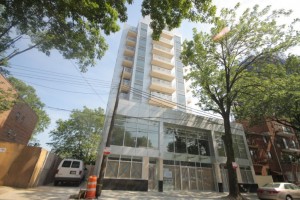A Flushing developer is suing the Department of Housing Preservation and Development for the revocation of 421a benefits for an 11-story, mixed-use property at 133-20 Avery Avenue in the neighborhood.
According to the suit, HPD wrongly determined that landlord Lisheng Ye was noncompliant, and then revoked her 421a benefits even after she met all the department’s compliance requirements. Ye was one of 194 landlords identified in a 2015 investigation by the New York state Attorney General’s office into abuse of the program, according to the court documents.
Under the 421a program, which expired last year and whose revival is currently under negotiation, developers receive tax breaks in exchange for meeting certain rent protection requirements. Just last week, the Real Estate Board of New York and the labor unions neared an agreement that would allow the $1.4 billion program be reinstated.
In August 2015, the AG’s office identified 194 property owners who received 421a tax breaks without providing the rent protection that made them eligible for those benefits.The investigation had targeted property owners who had filed condo plans but failed to follow through with the conversion. They were then subject to rent-regulation requirements in order to maintain their 421a eligibility. However, the landlords never registered their rental units as rent-stabilized.
Ye claims that she, along with the other 193 property owners who were found to be noncompliant, were targeted for “discriminatory and/or political reasons.”
Ye had initially registered her 28-unit building with the attorney general as condos prior to 2008, but chose to rent the units out instead when the financial crisis hit, according to the petition. In January 2016, Ye received notice from HPD that her building appeared to be noncompliant because none of the units were registered with the DCHR as rent-stabilized.
After she received notice, Ye attempted to register with DCHR, but got caught in a maze of contradictory and overlapping regulations from the three agencies involved, the suit claims.
The program also has a reputation for being loosely enforced and a ProPublica analysis found two-thirds of rental properties were receiving the benefits while ignoring the rent caps that made them eligible for the breaks. City lawmakers are pushing for tougher audits for the landlords who benefit from the program before it’s reinstated.
